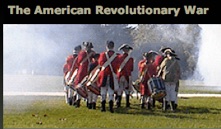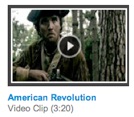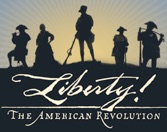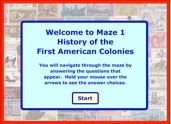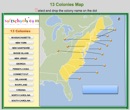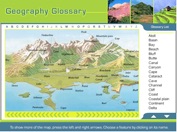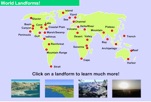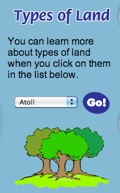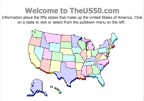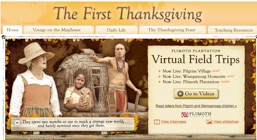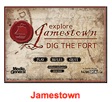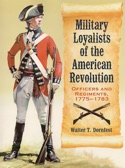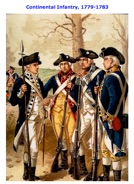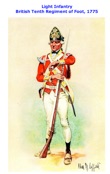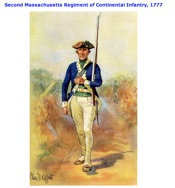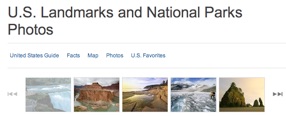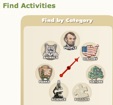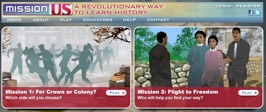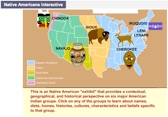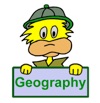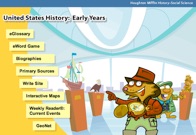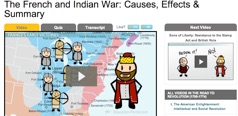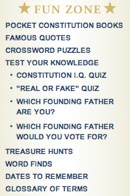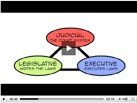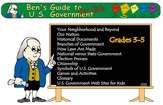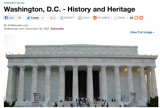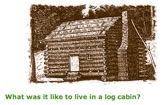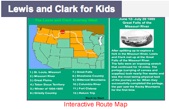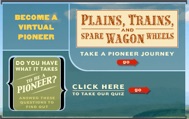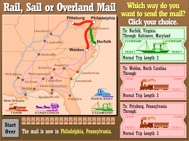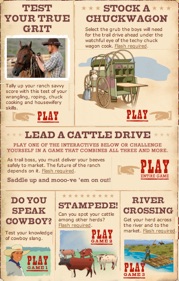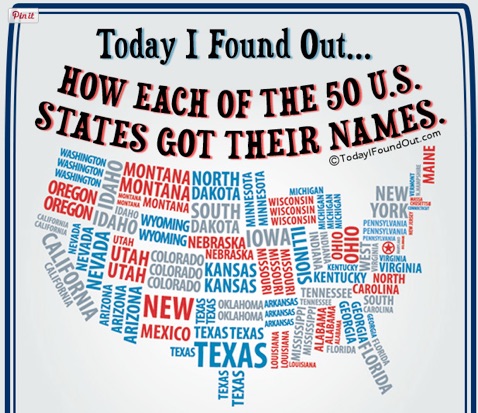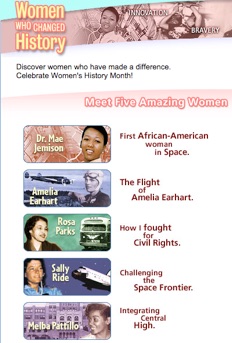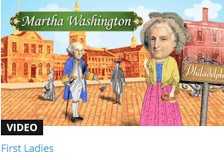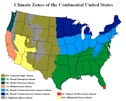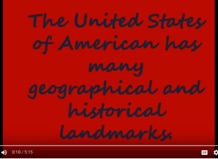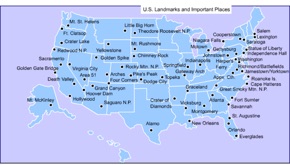social studies
Students in grade five study the development of the nation up to 1850 with an emphasis on the population: who was already here, when and from where others arrived, and why people came. Students learn about the colonial government founded on Judeo-Christian principles, the ideals of the Enlightenment, and the English traditions of self-government. They recognize that ours is a nation that has a constitution that derives its power from the people, that has gone through a revolution, that once sanctioned slavery, that experienced conflict over land with the original inhabitants, and that experienced a westward movement that took its people across the continent. Studying the cause, course and consequences of the early explorations through the War for Independence and western expansion is central to students’ fundamental understanding of how the principles of the American republic form the basis of a pluralistic society in which individual rights are secured.
You can view the California standards for History/Social Science here.
unit 1 - Our land and first people
Ch 1 - America’s Land
Ch 2 - The First Americans
unit 2 - Exploration and settlement
Ch 3 - Age of Exploration
Ch 4 - European Settlements
unit 3 - The english colonies
Ch 5 - New England Colonies
Ch 6 - Middle and Southern Colonies
unit 4 - The american revolution
Ch 7 - Causes of the Revolution
Ch 8 - The War for Independence
Ch 9 - Creating a Nation





Landform Links
Geo Games
American Revolution Simulation - Resources
American Loyalists
American Patriots
2012-2013
National Treasures - Resources


Famous Frontiersmen & Pioneers
James Butler (“Wild Bill”) Hickok - The sheriff who helped to tame two of the most lawless towns on the frontier.
Buffalo Bill Cody - Rode on the Pony Express, fought in the Civil War, and mounted a famous Wild West show, which traveled the U.S. & Europe.
Daniel Boone - American explorer and frontiersman who trailblazed the path through the Cumberland Gap &
settled in Kentucky.
Davy Crocket - Frontiersman, legendary folk hero, and three-time Congressman. He fought in the War of 1812 and was killed at the Battle of the Alamo.
Jim Bowie - A formidable knife fighter who became an American folk hero when he died during the defense of the Alamo. The “Bowie Knife” is named after him.
Kit Carson - An American frontiersman, trapper, soldier, and Indian agent who made an important contribution to westward expansion.
Laura Ingalls Wilder - Pioneer author wrote the autobiographical “Little House” childrens’ book series.
Annie Oakley - The famous sharpshooter who gained fame in Buffalo Bill’s Wild West Show.
Margaret Heffernan Borland - Owner of 10,000 head of cattle and was the first woman to lead a trail drive.
Narcissa Whitman - Her journey on the Oregon Trail proved that it was possible for women to cross the country on foot.
Jessie Freemont - American writer and political activist. She was the wife of Major General John C. Fremont and the daughter of former Senator Thomas Hart Benton.
Lizzie E. Johnson Williams - Cattle dealer and school teacher. She stepped confidently into a man’s world of trail drives & cattle brokerage, accumulating a fortune.
Pony Express - Ranked among the most remarkable feats to come out of the 1860 American West, the Pony Express was in service from April 1860 to November 1861. Its primary mission was to deliver mail & news between St. Joseph, Missouri and San Francisco, California.

March is Women’s History Month
Geography Links for 20 Questions Game

















